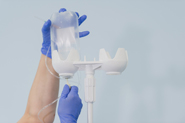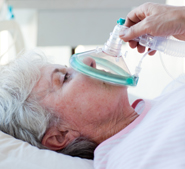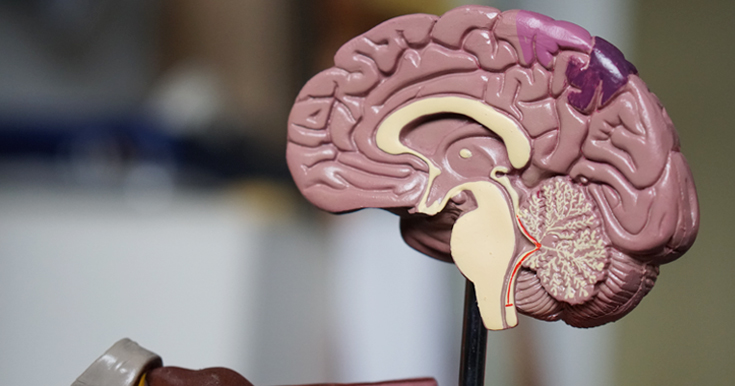How ICU is Managed During Covid19
Intensive care units or ICU are an integral part of any medical institution for a long time now. Since the introduction in 1854, primarily as intensive nursing care, ICU is now a critical aspect of any medical line. Especially in current times when the pandemic situation is responsible for the lives of hundreds and thousands of people dying every day.
Almost all good hospitals will have their designated spaces for ICUs. Whenever looking for the best ICU in Kolkata, ensure that you understand how these units work to make an informed choice. Admission to regular hospitals or ICU depends on the assessment of doctors and specialists.
What Is An ICU?
ICU or commonly referred to as a critical block, are specific units responsible for caring for a patient in critical condition. A trained and highly experienced team of doctors and staff is responsible for everything inside a critical unit.

The ICU hospital in Kolkata team mostly include –
- Specially trained nurses
- Experienced Physicians
- Respiratory Therapists
- Care Unit Managers
- Physical Therapists
- Occupational Therapists
- Other Staff
Patients with serious injuries or accidents stay in ICU for getting prompt care and monitoring. ICU hospital in Kolkata works round the clock like every other ICU unit in the world.

Who Would Need Critical Care?
Critical care is imperative for every patient who is seriously ill. It does not matter if they are infants or elderly. Patient’s health conditions can specify whether they would need admission to an ICU or not. Make sure to check what all facilities hospitals provide when choosing the best ICU in Kolkata.
The critical condition of patients requires special medical care and treatment. People who have to go under an invasive surgery or situation where surgeries outcome was life-threatening are admission to ICUs. ICU hospitals in Kolkata see everyday cases of critical accidents and traumatic surgeries.
Common conditions of patients requiring critical care and admission to an ICU are as follows –
- Brain Trauma & Injuries
- Blood Infections
- Drug-resistance infection
- Heart Conditions
- Lung Problems
- Organ Trauma or Failure
- Accidents and other serious injuries
What Happens After ICU Admission?
ICU treatments go on till the time the patient does not recover or make significant improvements. After the
patient is no longer in danger due to their illness or injury, they are discharged from the ICU. The ICU team
makes sure to make a treatment and care plan for the patient before shifting them.
Improvement in the health condition of the patient does not mean that they do not require medical attention. It only signifies that the patient is stable and does not require critical care’s attention.
Conclusion
There can be a thousand reasons to get someone admitted to a hospital’s critical care until it is crucial to find the best ICU in Kolkata. Not every hospital has a dedicated and specialised team to understand the specific needs of ICU care. Most of the time, the patients coming out of an ICU require a long treatment and therapy. Significant time and series of treatments are necessary for getting completely fine.
During these arduous situations, where everyone is uncertain of their health, you need to have a list of the best ICU in Kolkata as the need may arise anytime. https://www.ilshospitals.com/ being one of the top ICU hospitals in Kolkata can top your list under any situations.
Know the Five Steps of Emergency Care
We live in a world of uncertainty and prone to sudden ailments, accidents, or injury. It is at this time when we need emergency services. Emergency care is an essential part of our healthcare system. The patients in emergency care get immediate treatments compared to other patients. In an Emergency Department, there is a specific team of physicians, nurses, and healthcare professionals to provide urgent care to the patients. There are five necessary steps of Emergency Care:
1 – Triage
The first step involves sorting by understanding the severity of the patient’s condition. After the patient’s arrival, an assigned nurse will collect the medical history and perform the necessary examinations, like checking the pressure, pulse rate, and relating to the symptoms, if required. After the initial medical examination, the nurse will assign a priority level like Resuscitation, Emergency, Urgent, Semi-urgent, and Non-urgent, for the patient.
Only one member can accompany the patient to the emergency care department. In emergency care, the patients get the treatment based on their emergency.
2 – Registration
Registration is necessary for the patients in emergency care. A patient’s visit to emergency care may be due to various unfortunate events. Registration will help record the details of the patient. It will be useful for both the patient and also the hospital to have the document. With registration, the hospital authorities can get consent to start on with the treatment/surgery.
Sometimes, severe patients are taken directly for surgery or similar emergency treatment. It will also enable the surgeon/physician to decide on the best treatment for the patient. The specialists who have access to the patient’s room will carry on with their registration process in a serious scenario.
3 – Treatment
After the registration process, the treatment of the emergency care patients begins. A medical practitioner or an attending physician do the minor treatments of the patient. Based on the patient’s condition, he/she gets fluids or medications as recommended with the help of an intravenous line. Other tests like blood-test, urine-test, ECG, X-Ray follow accordingly.
Some test takes longer time to showcase the results, during the time of the stay, the emergency care department makes sure the patients are comfortable and under constant care. Only two attendants are allowed at a time in the patient’s room.
4 – Re-evaluation
The next step starts after the test results of the patients are received. It will decide the patient’s condition if any further treatment is required. At this stage, the physician can also contact the patient’s doctor for any supplementary information. The patient should inform the physician to know about any additional pain or discomfort felt by the patient.
5 – Discharge
The last step is patients discharge. A patient is discharged from the hospital if everything is stable in his/her medical reports. Emergency care must keep the patients healthy when under their observation. They are home-instructions; after discharge from the emergency care, a patient should follow them religiously. After their release from the emergency department, every patient should follow-up with their doctors regarding their health status.
Conclusion
Most emergency hospitals follow these well-organized steps of emergency care. Whenever in need, search for the best emergency hospital in Kolkata. With the knowledge of systematic emergency care rules, you can help those in need and save lives. It is always advisable to understand the processes involved in emergency care for one’s good. If you are in search of the best emergency hospital in Kolkata, then https://www.ilshospitals.com/ should be on your priority list.
What Does A Critical Care Specialist Do?
Intensive care saw its first recognition in 1950 amid the Polio epidemic. Effective use of intensive care ventilators and tools became responsible for the survival of many patients. Surgical possibilities and improved critical care management made way to be more effective and have improved survival chances. The intensive care unit or an ICU is a synonym for being the best possible care for patients’ critical condition.
An intensive care specialist is a person who is a medicinal specialist trained in treating critically ill patients. They get training to be proficient in comprehensive clinical management. The intensive specialist, like a critical care specialist in Kolkata, treats critically ill patients as the leader who would handle several multidisciplinary teams.
Who Is a Critical Care Specialist?
An intensive care specialist is the guy who is behind keeping patients with multiple organ failures alive and thriving plus care of those patients at the risk of deterioration clinically and patients needing resuscitation. Managing intensive and dependency units is also part of their expertise and duties. Intensivists are responsible for all-around betterment and care of the speciality.
Intensive care specialists diagnose and treat the conditions that cause them. It usually involves invasive and non-invasive diagnostic techniques, monitoring, and treatment modalities for supporting vital organs. Most of the prominent hospitals have some of the best critical care doctors in Kolkata.
Intensive care further saw an increase in its popularity when committed, and specialised individuals started handling said units. Such individuals soon attracted others to begin the speciality of the Intensivist. Intensivists or these individuals lead the medical team developments recognising their skills and abilities.
What Does A Critical Care Specialist Do?
Prominently physicians are the ones who handle critical care work in intensive care units of a hospital. Internal medicine specialists like pulmonologists, cardiologists, and other surgeons practising hospital medicine all can become Intensivist. Additional training in critical care management allows them to manage critical care units of a hospital.
Following are the prominent part of their duties while regularly ensuring the smooth functioning of an ICU and its patients.
- Keeping track of the clinical history and its presentation.
- Ensure focused and relevant medical examination of the patient.
- Review related data from radiology, laboratory, and microbiology data.
- Review reports and all inputs by specialists in the cases.
- Ensure accurate and precise documentation by the intensive care team.
- Ensuring safer patient transport by discussing the benefits and risks of transport.
Majorly to define what all an Intensivist is doing in intensive care, let’s look at certain benefits of having a critical care specialist.
- Improvement of patient conditions and survival rates.
- An effective decrease in the complication of the health conditions of patients.
- Review related data from radiology, laboratory, and microbiology data.
- Shorter ICU stays.
- Safer and enhanced medication.
What Is Intensive Care?
Critical Care Unit gives attention to seriously ill patients from the point of injury or illness to their discharge from Intensive Care. This process encircles Ambulance Services, Disaster Medicine, Emergency Medicine, and Preventive Medicine.
An Intensive Care Unit is a designated area in the hospital having a combination of specially trained staff. Monitoring equipment allows more detailed and frequent monitoring and more frequent intervention in seriously ill patients.
Conclusion
The above points might be enough for you to understand the critical role of an Intensivist. However, it is also true that an intensivist needs to keep learning and improving their specialised skills. There is a steadfast need to pioneer critical health-related procedures and therapies. For consulting the best critical care doctor in Kolkata, you should visit https://www.ilshospitals.com/.
Tips to Induce Healthy Eating Habits in Your Kids
Modelling your child’s eating habits at an early stage is very crucial as these manners lead to the later development of a healthy and active lifestyle. Obesity is a prevailing issue in the younger kids today. Junk is turning the kids into couch potatoes, and they don’t even bat an eye on the healthier options. There are various innovative and smart ways in which you can improve the eating habits of your little ones. A little understanding and creativity will go a long way.
Make Healthy Meals Look Delicious
Children get attracted to colours. Add more varieties of food ingredients to make the food appealing. You might also make cartoon characters or doodles with sauces and mustard to catch your kid’s attention and add a story to it. This trick works great with toddlers, and they will finish the meal in a breath.
Try Engaging the Kids Into Preparation
The fruit of hard work is always delicious. The case is the same with kids too. If they help you prepare the food, they will eat it. Also, you can introduce them to the nutritional values of certain veggies and fruits while cooking. This process will also help you learn your kid’s preferences.
Eat Healthy Yourself
How can you expect your little ones to stick to a healthy food regime when you don’t practice what you preach? Be a role model for your kids. If you follow a perfect eating habit, your child will follow the same path as you, and with little guidance, they will achieve a healthful diet routine.
Reduce Portions
To reduce the trans-fat and sugar intake, consult good paediatrics, and prepare a diet chart for your kid. Paying attention to the portion size will help avoid obesity and increase the nutritional intake and metabolism rate.
Healthy Snacking
One of the most effective ways to induce light veggies and fruits in your lad’s routine is through snacking. Time is a crucial factor. Plan the snacking time not too late and close to the dinner as it would make the child reluctant towards the night meal.
If you live in a big city, your child is more used to junk food, and that’s a given. Try contacting reputed aediatricians in Kolkata, to subsume better alternatives.
Try Making Your Approach More Friendly Than Dictating
As a parent, you must know now that kids can be rebellious. The more restrictions you subject them to, the more they try to defy you. Don’t dictate your child. Don’t put terms and conditions. Don’t reward or punish them through food. Instead, try educating them as to why healthy eating habits are necessary and beneficial for your future.
Look for What Your Kids Eat Outside
Have a check on what your child is served at school during the lunch hour. You can also pack some additional healthy side dishes for your kid to snack. Minimise the consumption of aerated drinks, fast food, and sodas. Whenever you go to a restaurant, choose healthy options, don’t make a health-conscious diet an occasion; incorporate it into your daily lifestyle.
You don’t have to be a specialist in designing the correct diet for your kids. It just takes a few steps and innovative ideas to set your lad’s eating habit on the right path. For any assistance, you can visit https://www.ilshospitals.com/ and try finding the best paediatricians in Kolkata. To know more, call us on ILS Care, +91 90514 60000.
How to Reduce Drying Skin and Hair During Winters?
Dry skin and hair during winters is a common problem we are all aware of. The low humidity indoors and outdoors doesn’t let our skin retain sufficient moisture, and in turn, it starts cracking. Dandruff is another primary concern and contributes to lowering our confidence. Fortunately, there are many cost-effective ways in which you can take good care of your skin during the chill season effortlessly without splurging money on expensive products.
Homemade Moisturizing Mask and Lotion
There is no need to spend a lot of money on moisturizing products because everything you need is already present in your kitchen. Coconut, being an excellent moisturizing agent, is a cure for both dry skin and hair. Honey and lemon mixed to make a perfect peel mask for dry skins. An avocado mask will also work as a hydrating item and will leave your skin soft and glowing. As you can get these products at home and there are no chemicals involved, you don’t have to worry about the side effects.
Using Humidifiers
Humidifiers are the perfect way to maintain a fair amount of moisture in the air. It regulates the moisture when the weather is drying. Keeping the cool air setting on is probably for the best.
Scrubbing
Even when it is winter, you need to bathe regularly while exfoliating your skin gently.
Dry skin mostly composes of dead cells and it is best to remove them. Try using natural, homemade scrubs as chemical-based scrubs might cause extra dryness.
Avoiding Harsh Cleansers
Face Washes and body washes with fragrance are generally hard cleansers. The chemicals present in such products make your skin drier and result in cracking. Use soaps and cleansers which are sulfate-free.
Use Oils and Water
Your dry skin and hair are indicative of less hydration in your body. To prevent that, use more oils like olive oil, coconut oil, almond oil, etc. These have multi-benefits and could be used in both cooking and applying on the skin and hair to provide nutrition.
Drink as much water as you can. It’s difficult because your body fools you during the cold weather, and as you don’t sweat much, you don’t feel like drinking as much water. But the outer environment has less moisture content, and so you should double your usual water intake.
Consumption of Dry Fruits
Dry fruits are great warming agents. They also contain vitamins and minerals that provide nutrition to your body. As dry fruits like almonds and walnuts provide strength to hair and deliver the necessary proteins, you should consume them daily to prevent dryness.
Choice of Laundry and Shampoo Cleaners
Use the laundry detergents, which are fragrance-free as they would not cause unnecessary irritation to your skin, transforming into cracking and scaling. As for shampoo, use sulfate-free ones. Reduce the use of heat devices on hair and provide proper conditioning. Include oiling in your haircare routine.
Taking care of skin and hair during winters is a challenging task. You need to maintain a balanced diet and incorporate vitamin-rich food ingredients in your meals to provide sufficient nutrients, warmth, and moisture to your body. Excessive cracking of skin due to dryness can sometimes impose the dangers of severe skin diseases, and you would want to consult a doctor in such circumstances. Dermatology is the branch of medicine dealing with the skin, nails, hair and its diseases and at ILS Hospitals, our team provides treatment for a variety of skin conditions. Visit www.ilshospitals.com for a consultation with the best dermatology clinic. Meanwhile, don’t forget to include the measures mentioned above and products in your daily lifestyle to reduce dryness from skin and hair.
To know more, visit www.ilshospitals.com or call ILS Care +91 90514 60000.
How to Keep Yourself Warm During Winter – Healthy Food Intakes
The Winter season is always filled with challenges. If you have elderly relatives or toddlers living in the house, you know they are the ones who suffer the most in any extreme season. In the cold, bone-chilling weather, whatever we eat decides how energetic and motivated we would be throughout the day. When lying in a cosy warm blanket with many snacks is everything one could ever ask for, choosing healthy snacking options is a task.
Ginger Tea
A cup of hot ginger tea can do wonders. It provides stimuli for thermogenesis (production of body heat) and boosts the metabolism activity too. If not ginger, you can also go for teas with spices, vegetable soups, and dals. All these options work well in providing heat to the body, making you feel warmer.
Eggs
Eggs are a great source of vitamins and protein. They also help in fighting infections and building immunity. As winter is infamous for cough and cold, eggs are of great help in constructing barriers for pathogens. Eggs are versatile, and you can make numerous dishes with them. Taste-wise, it’s something everyone likes.
Dry Fruits
Well, they are the best snacks. Dry fruits like almonds, apricots, walnuts, peanuts, dates, etc. can boost immunity and help you overcome dry and rough skin. They expel cold and provide the much-needed nutrition effortlessly.
Bananas
Rich in magnesium and Vitamin B, consumption of bananas, help in regulating body temperatures. They also improve the working of various glands of your body. The best part is, it’s easy to incorporate in any meal, and kids love bananas.
Spices
Turmeric, cumin, sesame, cinnamon, and pepper; these spices will offer the best winter flu-fighting mechanism. Turmeric in milk can make your body warm and boost the working of antibodies. Pepper, cinnamon, and cumin help in building barriers against flu and cold infections. Sesame is an incredible remedy for respiratory congestions and illnesses. Pneumonia, bronchitis, asthma is quite common to get triggered during winter. Make sure you have access to multi-speciality hospitals at times of need.
Caffeine
For coffee lovers, the winter season is an absolute bliss. Caffeine is a promising warming agent that keeps you active throughout the day. It helps to improve the rate of your body metabolism. You can combine and experiment with many flavours in your cup of coffee.
Honey
Consumption of honey during winter can work wonders. It reduces muscle pains and fatigue. Moreover, it’s great for sore throat, coughing, and wheezing. You can replace the bitter syrups with honey easily, and kids would love it.
There are times when we get excited about food more than anything. Winters, for example, make you so comfortable that getting out of bed seems impossible. But it’s crucial to maintain the right balance of nutrients and vitamins in the body.
If you are looking for the best hospitals in Kolkata or eastern India, ILS Hospitals is one of the torch bearers of the future of healthcare. We provide specialised treatments in nephrology, gastroenterology, diabetology, dentistry, etc. Check out their emergency helpline numbers for various cities all over India and get access to a safe medical treatment option.
To know more, visit www.ilshospitals.com or call ILS Care +91 90514 60000.
Stress Management in the Times of Covid19
Even though the COVID-19 crisis is a physical health crisis at first but might grow into a major mental health crisis. Good mental health is key to a smooth lifestyle and we, as individuals, should stay on top of our conscience to keep sane.
The pandemic has induced fear and anxiety amongst people due to the exclusivity of the disease. The common emotion that has enveloped people has been stress, fear, and a unified overwhelming feeling. Social distancing has people feeling isolated and induced anxiety about bigger things in life. What we, as a society, can do is stick to our hygiene-first actions to reduce the spread of COVID-19. But while you are at it, ss per the World Health Organisation here are a few ways of coping with stress in a healthy way:
Pause. Breathe. Reflect.
Take some slow breaths: in through your nose, then slowly breathe out. Slow breathing is one of the best ways to lower stress because it signals to your brain to relax your body. Notice how you are feeling and what you are thinking, without judgment. Instead of responding or reacting to those thoughts or feelings, note them, and then let them go.

Connect with others
Talking to people you trust can help. Keep in regular contact with people close to you. Tell them how you are feeling and share any concerns.
Keep to a healthy routine Do:
- Get up and go to bed at similar times every day.
- Keep up with personal hygiene.
- Eat healthy meals at regular times.
- Exercise regularly. Just doing 3-4 minutes of light intensity physical movement, such as walking or stretching, will help.
- Allocate time for working and time for resting.
- Make time for doing the things you enjoy.
- Take regular breaks from on-screen activities.
Don’t:
Don’t use alcohol and drugs as a way of dealing with fear, anxiety, boredom and social isolation..

Be kind to yourself and others
Don’t expect too much of yourself on difficult days. Accept that some days you may be more productive than others. Try to reduce how much you watch, read or listen to news that makes you feel anxious or distressed. Seek the latest information from trusted sources at specific times of the day. Helping others can be good for you too. If you are able to, offer support to people in your community who may need it.
Reach out for help if you need it
Don’t hesitate to seek professional help if you think you need it. A good place to start is your local health worker. Help-lines can also be a source of support.
Psychiatry is the medical domain that is dedicated to the diagnosis, prevention, and treatment of mental disorders of people who are otherwise disease-free. It evaluated patients who suffer from persistent and severe mood swings, unpredictable behaviour and actions, PTSD, panic attack, frightening hallucinations, self-harming, and hearing “voices.” it also includes patients suffering from long-term sadness, hopelessness, or anxiousness, up to a point when it begins to disrupt the everyday life. At ILS Hospitals, our expert psychiatrists are here to assist anyone in the times of a crisis.
To know more, visit www.ilshospitals.com or call ILS Care +91 90514 60000.
Understanding Brain Tumour – Signs, Symptoms and Myths
The human body is controlled by one of the most complex and largest networks of nerves – the brain. Understanding the functioning of the brain is vital to decoding brain tumours. It can be an overwhelming experience, courtesy: the sea of information available. In this piece, we have simplified the definition, listed down the myths and stated the facts.
To begin with, a brain tumour is a mass or growth of unnatural cells in any part of the brain.
Tumours can be broadly categorised into two – noncancerous (benign) tumours and cancerous (malignant) tumours. The cancerous tumours are more complex and can vary in size and implications. In rare cases, the sensitivity and balance of the nerves are compromised resulting in headaches, blindness, facial paralysis, etc. Owing to technology and advancements in medical science, brain tumours can be treated through surgeries and radiation.
Signs & Symptoms of Brain Tumour
The signs and symptoms of brain tumours are dependent on the location of the tumour. This mainly happens because the position determines the complexity of the tumours – some might directly affect the brain tissues while some may affect the peripheral nervous system.
Since different parts of the brain control different parts of the body, the symptoms also differ.
However, some of the common brain tumour symptoms are:
- Seizures
- Speech or hearing impairment
- Vision issues
- Issues in balancing, walking due to numbness in the arms and legs
- Problems with memory, personality changes
- Weakness, nausea and vomiting
To be noted: The symptoms can result from various conditions and don’t necessarily mean you have a tumour. It is strictly recommended to consult with a doctor to assess and process.
Common Myths & Facts
Myth: All non-cancerous (benign) brain tumours are harmless
Understanding the difference between non-malignant and malignant brain tumours can be difficult depending on its grade and stage. What is important to note is some non-malignant tumours can be as serious as the malignant ones. This occurs when the tumour is located in an inaccessible location, such as the brain stem. Thus, even non-cancerous tumours may cause harm if it goes untreated.

Myth: The signs and symptoms of all brain tumours are identical.
The most common and untrue myth that circles around brain tumours is this one – similar symptoms. Different people have different journeys to diagnosis – some may have no symptoms that indicate it is a tumour while others may have grave symptoms.
Myth: A non-malignant brain tumour does not require chemotherapy.
There are a host of factors that are to consider when it comes to chemotherapy. For example, any person’s age and overall condition, and the location and size of the tumour play an important role in determining if chemo is required. In most non-cancerous cases, it is usually not required, but exceptions are always there.
Myth: Once a patient finishes their treatment plan, life goes back to ‘normal’.
For some patients, there comes a day when active treatment ends. That day can bring with it numerous mixed feelings, relief, happiness, anxiety but also uncertainty. The end of treatment does not mean the end of the experience of having a brain tumour and the person may need to adapt to a “new normal” depending on long-term effects the person may have from treatment.
Myth: Brain tumours are rare and do not affect young people.
The number of brain tumours cases in children under the age of 20 has now surpassed leukaemia. Tumours are the third leading cause of cancer deaths in young adults between the age of 20-39. Secondary brain tumors are common than primary brain tumors – cancer begins elsewhere and spreads to the brain.
Myth: Brain Tumours are caused by cell phones and microwaves

Physiologically speaking, this myth makes zero sense as the studies have proved that radio frequency radiation (RFR) affects the skin first and a long way before reaching the brain. Calcium is the best absorber of radiation and thus, the skull protects the brain from the radiation to enter.
Neurosurgery is the medical branch that addresses the conditions related to the brain, spinal cord, and nervous system through surgical procedures. ILS Hospitals is all set with expert neurosurgeons to offer extensive treatment along with Surgical Management of Pain that interferes with the everyday life of the patient. To know more, visit www.ilshospitals.com
8 Ways to Keep Your Spine Healthy
The backbone of your movement, of your ability to function and sleep, is literally your spine. Almost all movements originate from the spine and without a healthy spine, it is difficult to even conduct daily tasks like sitting, standing or walking without discomfort and pain. As people age, they often complain about back pain from either sitting too long or too much activity or just old age.
Spinal diseases are highly common, especially when people start ageing. Owing to the flexibility of the cervical spine, it is common for people to damage that area over a period of time. Some of the common cervical spine diseases include degenerative disc disease, cervical stenosis, and cervical disc herniation. This occurs when the discs within the vertebrae begin to disintegrate, owing to damage to the fibres deteriorating with time. Other injuries include spina bifida, scoliosis, lumbar spinal stenosis, spondylitis and even tumours spreading and growing between your spinal cord.
Often these diseases present themselves as common symptoms like lower back pain, nausea, radiating pain in your limbs, stiffness, bladder or bowel dysfunction and more. Make sure you take these symptoms seriously and get professional help before it gets worse.
While most of these require medical attention, some spinal issues can be corrected with a change in lifestyle habits and can even be prevented by taking proper care of your spine. Taking care of your spine can be a part of your lifestyle. Certain activities and habits can help keep your spine healthy and happy, making your life much easier. Some of the ways to take proper care of your spine are:
- Stay Active: Maintaining an active lifestyle can help reduce the chances of experiencing lower back pain. Core strengthening and stretching can help the body be more flexible and move easily. Overall, an active life helps keep your back healthy.
- Lift Right: Many people experience severe back pain after they try to lift something heavy. It is important to be in the right posture and use your legs and knees to lift rather than your spine. Do not try and lift an extra-heavy object alone. Instead, get help and lift together.

- Stretch Regularly: To stay flexible and promote your spinal health, you should be stretching your neck and back every day. It helps maintain joint functions, improves your range of motion as well as reduces your risk of a back injury.
- Get Proper Rest: A good night’s sleep can do wonders for your body and especially your spine. Doctors recommend sleeping on your side as sleeping on the stomach puts pressure on the spine. A supportive mattress and pillow alignment also helps with the spine.
- Change your Posture: Often, people experience back pain because of the wrong posture, especially sitting. It increases the load on your spinal discs and wrong posture can cause inflammation, pain and more. It is vital to follow the natural curves of the spine and reevaluate your posture.
- Stay Hydrated: Staying hydrated maintains soft tissue elasticity and fluidity in joints. Loss of fluids causes discs to become brittle and eventually might lead to them slipping. It is also a cause for sciatica. Staying hydrated not only affects the spine, but your entire health.
- Maintain a Healthy Weight: Maintaining a healthy weight helps to take off pressure from the spine. Overweight or obese people put extra pressure on their spine and the muscles around them. A healthy diet and an active lifestyle helps avoid the lower back pain that comes with weight.

- Work Smart: Most adults spend hours in front of some electronic gadget, be it a laptop, mobile phone or television. The right kind of chair and seating position can help improve your back pain and lend functionality. Taking periodic breaks to walk around also helps the muscles to relax.
Despite your best efforts for a healthy lifestyle, sometimes preventive methods are not enough to alleviate back pain. Back pain can indicate more serious problems that might even lead to spine surgery. Seeking medical care is important in such situations to avoid further damage. ILS Hospitals, one of the leading healthcare facilities in Kolkata has an excellent neurological department that deals with spinal injuries and other issues. Visit www.ilshospitals.com to know more or call ILS Care, +91 90514 60000.
The Importance of a Healthy Lifestyle During the Pandemic
If the pandemic of 2020 has taught us anything particularly, it is the importance of having a stable, healthy lifestyle. While the definition of a healthy lifestyle is subject to many facts and interpretations, it should be taken into account that it is both mental and physical. Adopting healthy choices for both your mind and body is crucial and can result in a thriving life at large. The choice is ours to make – eating an apple over the tempting bowl of fried chips to taking a digital detox and picking up a book. Here is a list of things that you should definitely incorporate into your lifestyle for long-term benefits.

1. Hydration is the key
A human body needs enough water to keep the fluid balance in check. Not only that, hydration plays an important role in nutrition as well. We need water to digest the food, get rid of waste and for perspiration. All humans should consume a minimum of 1.5 to 2 litres every day. However, drinks with high sugar level should be avoided.
2. Eat your bowl of fruits and vegetables
As per the USDA’s Dietary Guidelines, it is recommended that adults should eat anywhere from 5 to 13 servings of fruits and vegetables per day as per their age and gender. Five servings of fruits & vegetables are one of the golden rules of nutritional science. This is an excellent way of consuming essential vitamins that contribute to our overall nutrition.
3. All Fats are not bad
It is no news that every balanced diet should include fats – mono unsaturated and poly unsaturated fats. It is important to include healthy fats in our diet from avocados, olive oil, nuts, seeds, etc. to ensure that we consume more healthy than unhealthy fats.
4. Mindful Meal Preparation
Anther tricky aspect of eating healthy is the correct preparation of meal. How well you cook a vegetable ensure the nutrient count – All healthy nutrients can be lost if they are cooked too hot or for too long.The ideal and safe way to go about is by cooking light and thus, eating right. Prepare a diverse meal – the more type your plate has, the more balanced your diet will be.

5. Bid Sugar & Fast Food, Goodbye.
No matter what you have grown up listening to or how much you love your cake, stop consuming sugar. Your body does not need artificial sugar and it is doing more harm to you than any good. Stay wary of what you eat and stay away from the sugar trap. Another evil in the world of a healthy lifestyle is the unhealthy fats that fast food has to offer. Delicious on the tongue and delirious for the body, one should avoid fast-food at all costs.
Making the shift to a healthy lifestyle is not easy but isn’t impossible either. At ILS Hospitals, we advocate a healthy and happy lifestyle. With an underlying mission of ‘Your Health, Our Happiness’, we provide the best of quality healthcare.
Our branch of General Medicine deals with common illnesses, addressing the symptoms, diagnosis, treatment, and recovery from a wide range of diseases involving most of the body parts. To know more, visit www.ilshospitals.com or call +91 90514 60000.
































